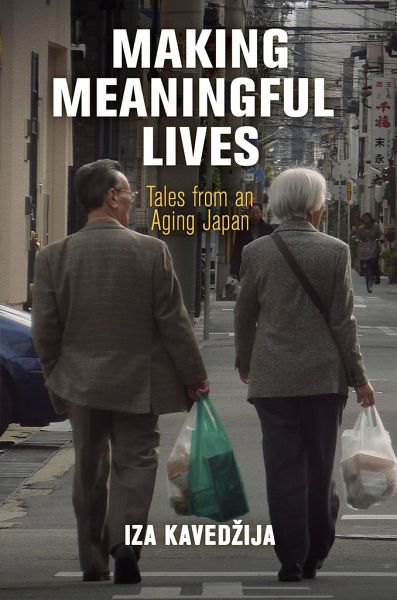
Making Meaningful Lives
Tales from an Aging Japan
Versandkostenfrei!
Versandfertig in über 4 Wochen
23,99 €
inkl. MwSt.
Weitere Ausgaben:

PAYBACK Punkte
12 °P sammeln!
"A central concern of this book is the complex relationship between the good life, or what it means to live well, and one's sense of meaning or purpose in life. In the Japanese context, a useful starting point for exploring this issue is the concept of ikigai. This can be translated as "that which makes one's life worth living," or what makes life "livable," as it were. One might or might not "have" an ikigai--in which case the term refers to a particular motivation to live or a purpose in life. What and who one cares for is closely related to purpose in life, sometimes considered the basis of...
"A central concern of this book is the complex relationship between the good life, or what it means to live well, and one's sense of meaning or purpose in life. In the Japanese context, a useful starting point for exploring this issue is the concept of ikigai. This can be translated as "that which makes one's life worth living," or what makes life "livable," as it were. One might or might not "have" an ikigai--in which case the term refers to a particular motivation to live or a purpose in life. What and who one cares for is closely related to purpose in life, sometimes considered the basis of ikigai. In this sense, ikigai can refer to a more general form of well-being and pleasure in life, especially when used in relation to the elderly. This raises certain existential questions in relation to older age: does maintaining a particular purpose in life, a well-defined source of meaning, remain possible or even necessary in older age? Indeed, do even younger people have or need such a well-defined purpose? To what extent are life stories relating to meaning and purpose in one's life related to stories of expectations and values in the broader society? In short, I argue that the issues of aging and the good and meaningful life are inextricably connected"--













